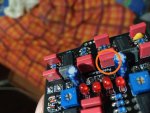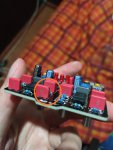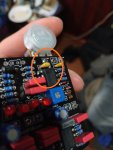I was finish little Debbie. And i didnt noticie i pass the iron through some components. First Time i burn components. My questions is the components are dead? I gonna need to replace? I dont wanna finish the proyect if its sounds im afraid is dead. ????
I couldnt upload the images because are too big gonna try to use external services. My God even the picture upload failed. This project is dead from the beginning ?????
I couldnt upload the images because are too big gonna try to use external services. My God even the picture upload failed. This project is dead from the beginning ?????




